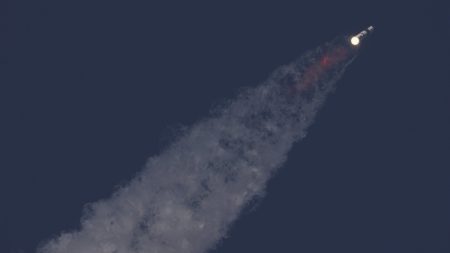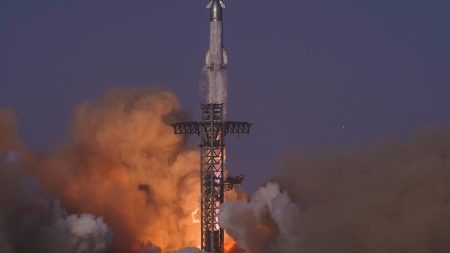In a significant move for the future of American space exploration, President-elect Donald Trump nominated Jared Isaacman, a tech billionaire and staunch supporter of private space endeavors, to lead NASA. At just 41, Isaacman has demonstrated an unyielding passion for space travel, having purchased numerous flights from SpaceX, the aerospace company founded by Elon Musk. Notably, he conducted the first private spacewalk during a mission in September 2021 that fitted him with testing suits facilitated by SpaceX. His selection aims to bring a fresh perspective to NASA, replacing Bill Nelson, who previously held the position under President Joe Biden. Nelson, an experienced former senator and astronaut, played a significant role in advancing lunar exploration during his tenure, including the Artemis program, which aspires to return astronauts to the Moon by next year.
The Artemis program, named after the twin sister of Apollo, reflects the United States’ commitment to return humans to the lunar surface for the first time in over fifty years. During Richard Nelson’s leadership, NASA prepared to send four astronauts on a circumlunar mission in the coming years, with the ambition to establish a sustained human presence on the Moon. Central to the success of these missions is SpaceX’s development of Starship, the next-generation rocket designed for transporting astronauts safely to the lunar surface, which is currently in the test flight phase in Texas. NASA’s reliance on private aerospace companies like SpaceX marks a shift towards utilizing commercial partnerships in space exploration, highlighting the increasing trust in these enterprises to deliver on critical missions.
Yet, while NASA looks forward to lunar expeditions, it remains focused on its extensive array of existing projects, including robotic missions to explore various celestial bodies. Presently, NASA operates several missions targeting outer planets like Jupiter and Mars. The Mars rover Perseverance is engaged in collecting rock and soil samples, providing vital data for understanding the Red Planet’s geology and potential for past microbial life. Meanwhile, NASA faces budget constraints and is exploring accelerated and cost-effective means to bring Martian samples back to Earth, as previous estimates ballooned to $11 billion with timelines stretching until 2040. The evolving landscape of space exploration emphasizes the need for innovative strategies, urging NASA to seek collaboration and ideas from both industry leaders and the scientific community.
Isaacman’s professional background and experiences align with the evolving nature of space exploration, marked by a blend of entrepreneurship and a deep-rooted interest in aviation. He initially gained prominence as the CEO and founder of Shift4, a card-processing firm, which he started at a young age, exemplifying his entrepreneurial spirit. His passions are not solely business-oriented; a devoted “space geek,” Isaacman has a history of adventure, including setting a global speed record in a fighter jet for charitable causes and establishing Draken International, which operates the most extensive private fleet of fighter jets. As he embarks on his planned expeditions with SpaceX, including future missions aboard Starship, he brings operational insight from both his entrepreneurial efforts and hands-on experiences in space travel.
Isaacman’s close working relationship with Musk and SpaceX underscores the increasing intersection of private enterprise and governmental space missions. His nomination has garnered support from prominent figures in the aerospace industry, including Musk himself, who commended Isaacman’s abilities and integrity via social media. Should he be confirmed as NASA’s leader, Isaacman would oversee a pivotal transition wherein NASA collaborates further with private companies, fostering an environment ripe for innovation in space technology and exploration. His first-hand experiences in space advocate for a more diverse approach to missions, enhancing public engagement and interest in human space exploration.
Overall, Jared Isaacman’s nomination signals a potentially transformative era for NASA and U.S. space exploration. As the agency aims to revitalize its lunar ambitions and enhance its exploratory capabilities in the solar system, Isaacman’s leadership could yield a resurgence of public enthusiasm for space. By blending the operational expertise of private enterprises with the scientific rigor of government missions, NASA can navigate tight budgets while achieving grander ambitions. This cooperation symbolizes a new frontier in which the boundaries of space exploration are continually redefined, perhaps making way for unprecedented achievements in humanity’s quest to explore the cosmos.










